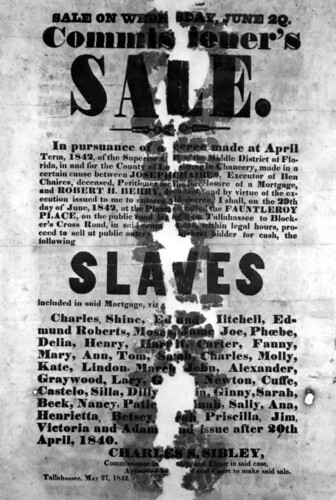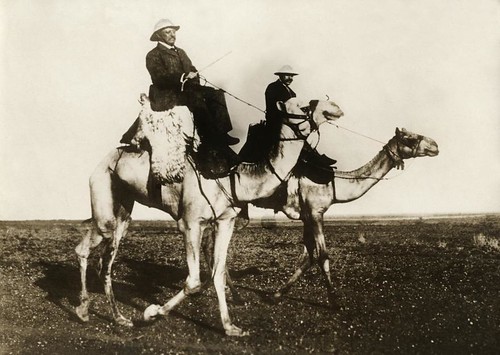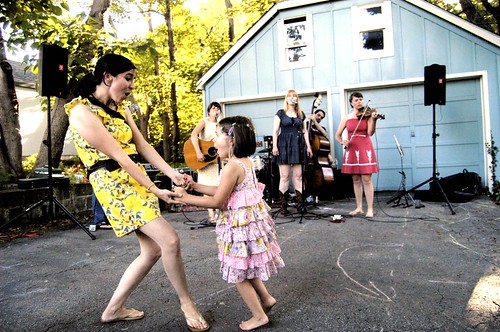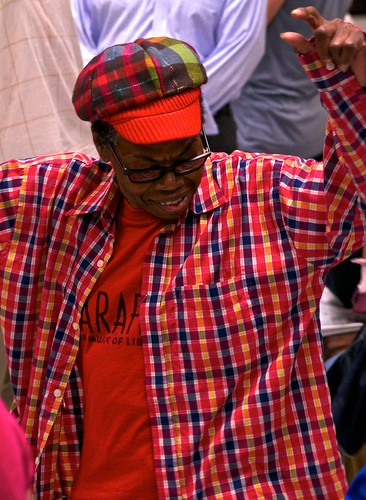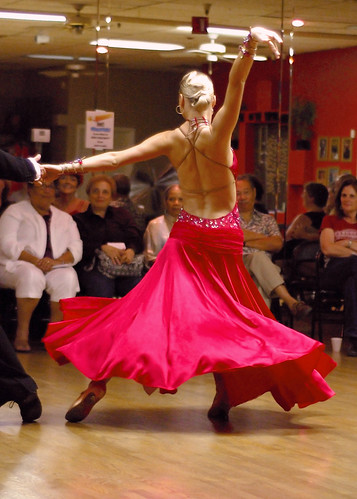Because I'm such a big-mouth anti-war person, I meet a lot of other people who are also anti-war. Some of them have a very identifiable Christian-based consciousness against all things empire-a-violence based. I count as good friends
Kurt Willems,
Ian EbrightPN, and other Christians who are opposed to war because they believe that war opposes the person and practices of Jesus. I also meet others who are opposed to war on principled and practical grounds, some of whom have first hand experiences of the ravages of rampant militarism and wars, which I, gratefully, do not. They may or may not be against all forms of violence. They may be atheists or Muslims. They may be progressives or socialists or libertarians or anarchists. But they're important allies. So if I disagree with them on a certain point or two, it's water. If I don't need to get into an impractical rant, I'd rather not (well, not
always).
Many of these latter - and some of the former - group allies, however, also belong to the Ron Paul camp. I can understand their fascination with the only current major political candidate that is against occupational wars as well as the only candidate who's even openly suggesting ceasing the costly, ineffectual, dangerous, and racist war on drugs. For these alone, I commend whole-heartedly Ron Paul and his supporters. However, these efforts do not stand on their own, and Paul acolytes fail to see the dark side of the gynecologist's views and faith. I propose that while Rep. Paul wants to end three very detrimental wars, he is advocating for several other detrimental wars.
 Ending:
Ending:
Unlike most of the GOP field, Paul doesn't seem to be or even
pretend to be disgusted or scared by Muslims or Arabs or any of the
Scary Other. He has correctly pointed out that the terrorist attacks weren't as a result of some weird, non-sensical "hatred of our freedoms", but as a backlash against our intrusion into sacred and public spaces of those we have no business intruding. (I would add, however, that the attacks also were directed at our the greatest symbol of our financial institutions and we should consider the attacks a statement against the financial ruin that the multinational corporations are committing in the so-called developing world).
Ron Paul has made it clear that
he desires to end our empirical invasions into sovereign nations,
whether through financial "aid" (military hardware support) given to allies such as Israel and used to propagate ethnic cleansing or against the nations' own people,
or through the presence of our standing armies intruding into their lands (although I'm not so sure what he feels about removing
all Americans with large guns from the sovereign nations... but at least those from the US government)
or through drones and deadly covert operations carried out from far away.
Additionally, and in many ways
as important, is his willingness to vote against the strikes on
habeus corpus and the Bill of Rights that have disguised themselves under the newspeak of "Patriot Acts" and
related bills. It's not that I don't want to get into any further business on this topic, but I think writers like Glenn Greenwald have this much more exhaustively covered than I do.
Outside of Ron, and (gulp!) his son Rand, there doesn't seem to be many dissenting voices left on capital hill against the big brother invasion and the police state that we are becoming. This is another reason to take him somewhat seriously.
African-Americans and Latinos do not use drugs any more frequently or per capita than Whites and Asian Americans do. And yet they are arrested, charged, and imprisoned for the crime of possessing small amounts of marijuana at a ratio of
up to eighteen times as much as their white counterparts. To be brief about it, this is what is properly deemed
The New Jim Crow Laws, set in place to incarcerate and incapacitate large sections of the minority population in America that the dominant culture finds threatening.
This is not to mention the hampering and violence that the illicit drug trade has caused in so-called Narcostates like Northern Mexico now or much of Colombia previously.
The WoD is an immense, racist, classist, losing battle pursued only for political purposes. It helps the Prison Industrial Complex by making these private companies that specialize in building immense structures of torture and detention look like they're providing a necessary and good public service for all communities by locking up such a large segment of the young population. The WoD is a way of controlling a seemingly subversive people group - and it effectively robs large segments of the African American and Latino communities from competing with Whites for better-paying jobs as well distancing them from their right to vote and the ability to hold political sway.
The War on Drugs is a win-win for the White power structure and, as such, a challenge against it from within Washington is a welcome change-of-pace.
However, having said that, let's look at the flip side. Ron Paul would be
Starting or continuing:
- War on Government Protection
While his desire to end the Dept of Ed may be questionable (I'd rather overhaul it completely. As it is, it serves the Educational Industrial Complex. Not get rid of it, mind you. Fundamentally change it), it's not as dreadful* as his wanting to get rid of the Environmental Protection Agency, for instance.
Paul and other Free Markies trust that the free market would force businesses to self-regulate. However, Free Marketstry is a bad religion; it's blind faith having absolutely no connection with reality or history or logic.
Business, by its very nature, is concerned primarily with the bottom-line and needs checks against it to have a sort of conscience.
Consumers, fittingly, consume what they consider to be the biggest bang for their buck - especially when they have little bucks with which to bang. Which is why Wal-Mart, with its horrible employment practices and crappy clothes, is pulling in much more money than much more ethical companies. I'd name some, but since every other major company is following their model, there really aren't many to highlight anymore.
 Boycotting a product not meeting up to moral or ethical standards doesn't work on its own. Especially if those with the most to lose are those with the least amount of consumer, purchasing power
Boycotting a product not meeting up to moral or ethical standards doesn't work on its own. Especially if those with the most to lose are those with the least amount of consumer, purchasing power. Ending the EPA would effectively and quite literally
kill the most vulnerable people (the poor, which are disproportionately people of color), as they are those most in need of protection from topical erosion, poisoned water and earth, lead paint, mercury, toxins, heavy air pollutants, etc. And this is but one example.
Another example? How about his continual and bizarre criticisms of the
Civil Rights Act? The nicest that can be said about that is that at least he's honest that he's still against the bill. In a HuffPo article,
Paul explained that while he supports the fact that the legislation repealed the notorious Jim Crow laws, which forced racial segregation, he believes it is the government, not the people, that causes racial tensions by passing overreaching laws that institutionalize slavery and segregation.
It's a core Paleo-Conservative argument. It's always some smooth variant of this:
"Racism is caused by those N####-lovers and the fact that they're always trying to shove the Black Man's equalness down our throats. If they would stop trying to be equal, we wouldn't have no racism!"
Or how about Paul's continued suggestions that
women frustrated by sexual harassment in the workplace should leave the work force because they're not suited to the environment? In one of his books, he makes it clear that it is not the government's job to get involved in such affairs. Paul also said, on the air fairly recently, that harassed women should not bring the courts in when feeling sexually abused because of "some joke."
I don't know what Paul envisions government's role to be, but it would not include protection.
- War on Financial Stability of Ethnic Minorities and Women
While it may be true that African-Americans traffic in drug peddling more frequently per capita than their white counterparts, that is largely due to it being a means of economic survival to some within a people group systemically marginalized economically and politically. Underground economies are necessary when communities are largely restricted from the over-ground economy - which is not to say that the Black Economy is centered on illicit drugs or illicit trading, nor that most blacks are not working at over ground economic jobs (though often that work needs to be supplemented by hairdressing or child care work, for example). And
while Rep. Paul is right to point that out the error of the War on Drugs, he doesn't seem in the least concerned in the reasons why Black and Brown folks are disproportionately identified with illicit trafficking. Paul focuses on
few of the symptoms of White Supremacy without acknowledging the root causes or even the bark of racism.
It's as if, when we get rid of illegal drug trafficking and decriminalize drugs, then Black men will no longer be disproportionately imprisoned and they will be welcomed into their choice of living wage jobs. (Oh, and the streets in their segregated neighborhoods will be sparkling with gold cakes!) But since Paul wants to additionally take down some of the few equalizers out there - including the Department of Education - and since he seems interested in curtailing the Justice Department so that it doesn't get involved in the discriminatory affairs of the workplace, it is excruciatingly obvious that he thinks very little of the economic survival of those most** exploited in this country's racist history. Rather, he is only
FURTHER exploiting them.
Or, as I read on one tweet, "
'I'm against the War on Drugs' is the new 'I have lots of Black friends!'"
But it's not like poor White people are going to get much of a break either.
Since he favors unrestricted business, don't expect to make a living wage at your service job (if you have enough luck to actually get and maintain a job in the US). And if you're not making enough to get by, don't expect any monetary assistance from the government.
Or, really,
any sort of assistance...
Also, since the roads are being privatized, you're gonna have to start paying for the privilege of traveling, too.
Good luck trying to maintain those middle class buffer jobs...
- War on Identity of non-White Cultures
Paul's solution to racism? That each person would be treated as an individual (read:
White person. Of the Caucasian genre). It's more of the same "color-blind" approach that liberals, moderates, and conservatives (of the non-paleo variety) have been pushing for the last sixty years and that only exacerbates racial conflict.
The color-blind theory says, "If we tell people to stop bringing up race and refer to ourselves as only belonging to ourselves - with no anchoring in history or culture or family or traditions - then everything will be good."
People need anchoring. We may like to believe that we are independent free-spirits, but no person exists within a vacuum.
If there is no tie to our roots as people, we drift to the dominant culture and whatever they tell us they want us to be.
Blahs.
Consumers.
Worker bees.
Toy Soldiers.
Slaves.
Wallets.
Company Property.
That's ignorance, and Paul's blatant about it. Yet he continues to call himself an "anti-racist." I have heard that same foolish language from people who defend caricatures of blacks characters (or should I say, they defend their right to usurp what they figure to be linguistic characteristics of Black speech and thought for comedic levity) and from the fine Freepers at Free Republic. And assorted other White Supremacists.
The color-blind apologists are missing some major points, though.
1) We are people. And people are grounded in history and culture. I am proud of my Irish and Puerto Rican heritage. These are strong people who've faced much oppression and fought and continue to fight against the dominion of empire rule. That's just but one example.
2) To try and erase our racial/cultural/ethnic histories and identities and start with any sort of clean slate (which is the premise of color-blindness) is to rob people of their identity, leaving them only with the moorings that corporate society sells them (pop culture, for instance). Of course, this is
ALREADY happening. It's just that Ron Paul's wants to ramp up that procedure - whether or not he admits it or believes it.
Paul's concern with racism isn't as a sociological factor and an institutional means of subjugating so much as it can be a political tool. On the one hand, he can claim to be against racism by being against the War on Drugs and even the War on Terrorism. But on the other hand, he sends clear signals that he is also against the "racism" of Affirmative Action and other so-called preferential treatments of people of color.
It's the same old dog-whistle used by White Supremacy without acknowledging the root causes of racism or why we need such anti-racist actions (flawed though they may be)
as Affirmative Action.
Democracy is much more than the concept of voting for one of two or more choices. It means that all are treated as equal and each has equal access. Paul's brand of libertarianism proposes that all rights are inherently property-based. The rights over the self begin with the acknowledgement that we are our own property and then it extends from there to whatever else we may own. Which is nice if one has plenty of property.
Actually, I don't see how his philosophy is any different than the corporatists out there now, except that his political practice is
genuinely Corporatist. Where other Tea Party pols and candidates give lip service to reducing government's involvement in the affairs of private business, RPizzle is the real gold-danged deal. His entire platform is to centered on the idea of getting that old intrusive government out of the way of the Free Market hand. The Free Market, if you are not aware, is an entire religion into itself with its own priests, gods, hierarchies, sacraments, demons, theological framework, sacrifices (usually of the human variety, but
en masse, like little seen in religion since the Crusades and the Reformation Wars), and mystical whimsical powers. The Hand of the Providential Free Market knows all, guides all, "frees" all.
Which is to say that the way in which businesses and financial institutions operate, when unhindered by the restrictions of governmental interference, will institute a New Morality. Wrongs will be righted. Unless they're re-enforced, that is, and institutionalized. Corporations will have unlimited power and people will have little access and little say - unless they are wealthy enough to be a majority stock-holder. That is anti-democratic. Ron Paul and the rest of the current GOP crop) are advocating for an America ruled by the few, for the benefit of the few.
- War on the Public Welfare
The Congress shall have Power To lay and collect Taxes, Duties, Imposts and Excises, to pay the Debts and provide for the common Defence and general Welfare of the United States
Gutting and phasing out of Social Security, unemployment benefits, Medicaid, financial aid, food stamps...
For someone who expressly runs on the idea that he [
alone!] can guarantee the salvation of the Constitution of the United States of America, he sure likes to play loose with some of the actual Constitution. I know there's some debate about the actual "general Welfare" clause, but I can guarantee it means that roads should not be privatized.
In fact, Paul went on Fox News to debate with Chris Wallace,
of all people, that Medicare is unconstitutional and that only
EXTREME liberals/Democrats argue otherwise, disregarding the fact that even Justice Scaliani disagrees.
- War on Immigrants and Any Openness to the Rest of the World
Ron Paul sees immigrants as a burden on the US, rather than as, say, people and families that actually benefit America. As such,
he is strongly against both a "welfare state" and against easy access to citizenship, both of which he sees as drawing in immigrants (you know, like bugs...).
Paul has stated that he wants to complete an impenetrable border fence around the US. I'm not sure if it's supposed to be around the whole of the US, or just around the Mexican-y parts of it. He also wants to send all undocumented immigrants out of the country (nice cost-saving procedure. Oh, wait.
It isn't). Additionally, he wants to change the fourteenth amendment so that anyone born in the States to non-citizens is not a citizen by birth. He also wants to bring our troops home so that they can guard our borders.
Some of my Paul-ine friends are against these desires, as it betrays their loyalty to both human dignity and the
anarchy part of anarcho-capitalism. But it's really
just a part of his grander scheme of not just non-interventionism, but complete withdraw of the US government from responsibility to the rest of the world.
He not only doesn't want to support the Zionist genocide against Palestinians that costs the US millions of dollars a year (and the reasons for his lack of love for that don't seem very clear. he has been accused of virulent antisemitism), he also doesn't want to have
ANY relationship to international bodies of accountability.
Except for international conglomerates. They are free to roam about - and rape and steal from - the world unhindered. Not their money, so much. But their business...
- War on Non-White, Non-Hetero Personhood
Now, I'm
not going to say that Ron Paul is
himself a racist. I don't think he is, at least not in the classic sense. But
he doesn't seem to understand the ravaging effects that his policies (save the WoD, which he overemphasizes)
would have on people of color or anyone wishing to marry in a non-traditional (read: heterosexual) manner. He's no worse in many ways than his Republican counterparts (especially that douchebag Newt Gingrich) who openly revile Blacks, Muslims, the GLBTQ community, Latinos, women, liberals, the poor, non-Christians, anti-capitalists, etc, etc. But even they aren't affiliated with neo-Nazi and aggressively White Supremacist groups. Even they, as far as I know, have never had letters addressed in their name that they published.
The white supremacists, survivalists and anti-Zionists who have rallied behind his candidacy have not exactly been warmly welcomed. “I wouldn’t be happy with that,” Mr. Paul said in an interview Friday when asked about getting help from volunteers with anti-Jewish or antiblack views.
But he did not disavow their support. “If they want to endorse me, they’re endorsing what I do or say — it has nothing to do with endorsing what they say,” said Mr. Paul...
What Paul fails to acknowledge here is that
the White Supremacists are endorsing him because his policies are very identical to what they desire.
Although he could make a distinguishable, unilateral break from them and their philosophies and what they stand for, he doesn't.
There has never been any ownership of his part in or apology for those newsletters, which were a part of building up his base and raising money for his ventures while he was taking a break from the House.
But he and his proponents constantly point to his stance on the War on Drugs as if that somehow excuses his racist ties and policy. As some friends have pointed out,
it's disrespectful and disingenuous to associate people of color solely with drugs and criminality. The majority of African Americans do not do drugs, the majority of them are not nor have been imprisoned.
Legalizing drugs also does not mean that African Americans and Latinos will automatically be given proper treatment before the law. It does not guarantee fair treatment before judges, juries, lawyers, witnesses.
It does not mean that the color of their skin and their dialect will not automatically impugn a false and damning sense of guilt upon them before White people.
Some pro-Paul bloggers have even gone so far as to dig up old photos from his medicine-practicing days to show that he's not a racist. "
Notice his body language," they demand us. "
He obviously feels comfortable around black people."
Ok.
You know who says stuff like this? Racists trying to prove they're not racist.
For White people who are not clear on the comcept:
It is demeaning for human beings to be treated like trophies and show pieces and trotted around as if they are domesticated pets. And that's how Ron Paul's fans are treating Africa Americans in relation to Paul's racist policies.
Humiliating and belittling entire people groups is NOT conducive to demonstrating that one is NOT racist against those same groups.
The sooner Paul and his fans realize this, the more respect they will be given. Unfortunately, it may be too late for Paul's career.
I propose we find another anti-war candidate to get across anti-war ideas. Preferably, one who is not trying to start several other wars...
-------------------------------------------
PN: I apologize for the incorrect spelling of my dear friend's
last name, but
Ebrite just sounds so much more nostalgic and, ergo,
awesome!
*In my estimation, maybe I'm missing something. Oh yes, federal aid for college students. I haven't heard of is plan for that, but I assume it has something to do with block grants and the "artificial inflation of university tuition." The bottom line is that that
may be defensible.)
**I haven't heard him refer to American Indians, but I'm sure he has some explaining to do when referring to property rights in this country...
Related links:
http://www.addictinginfo.org/2011/12/23/flashback-ron-paul-believed-that-the-federal-government-should-have-paid-off-slave-masters-to-free-the-slaves/
http://www.dankennedy.net/2011/12/26/more-on-ron-pauls-ties-to-the-racist-far-right/
